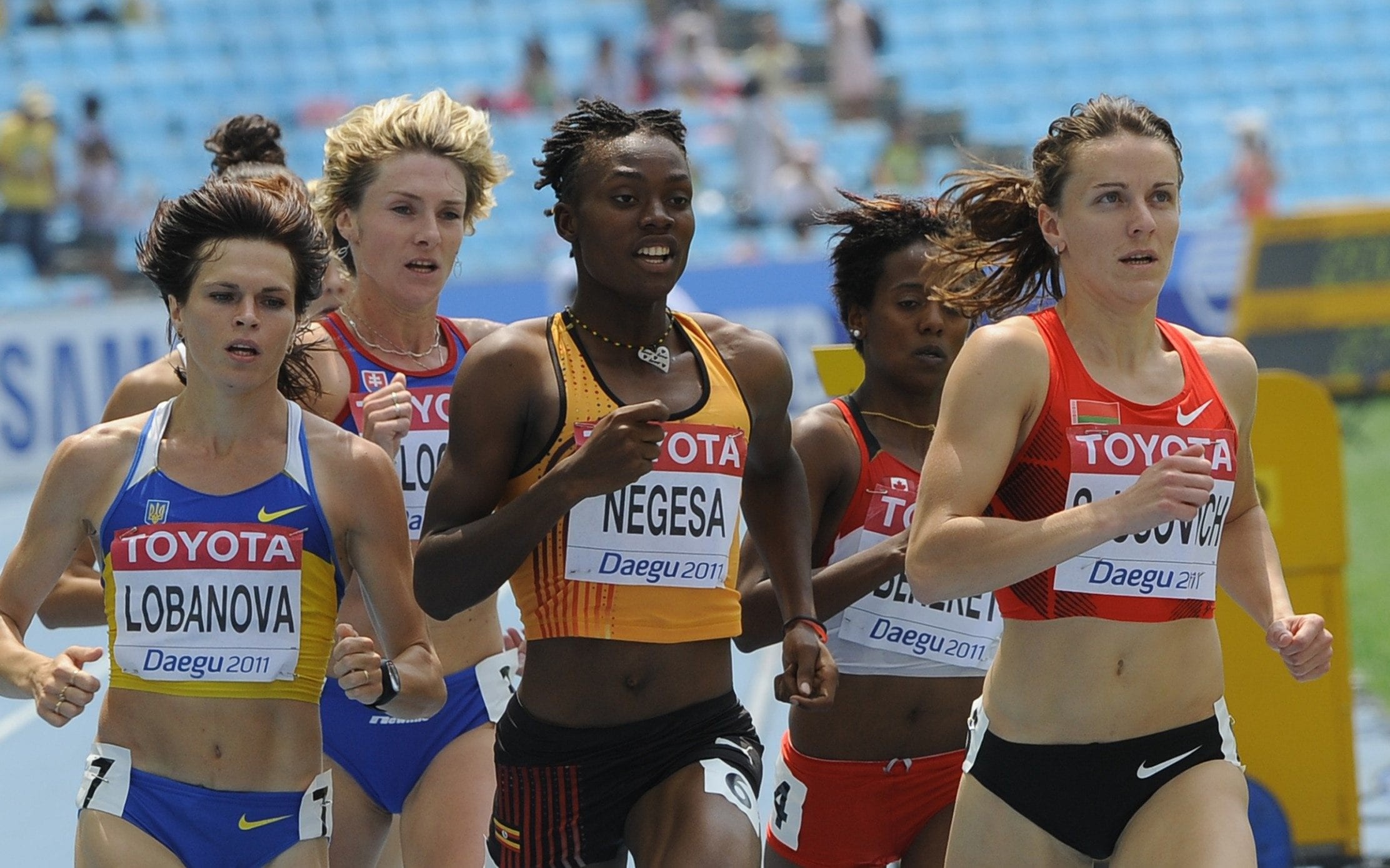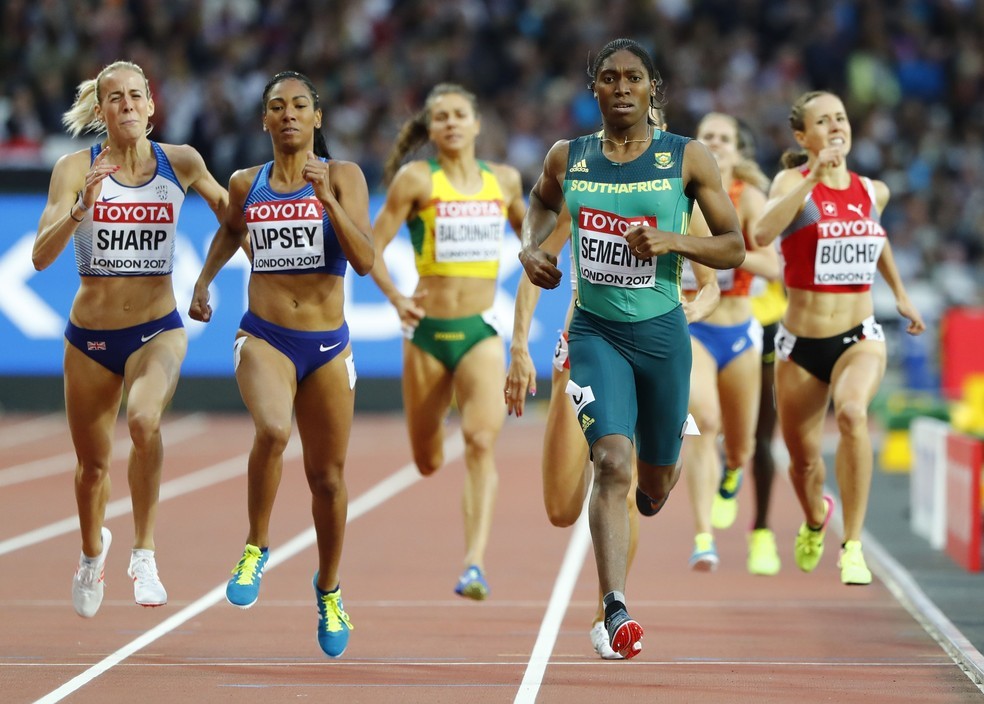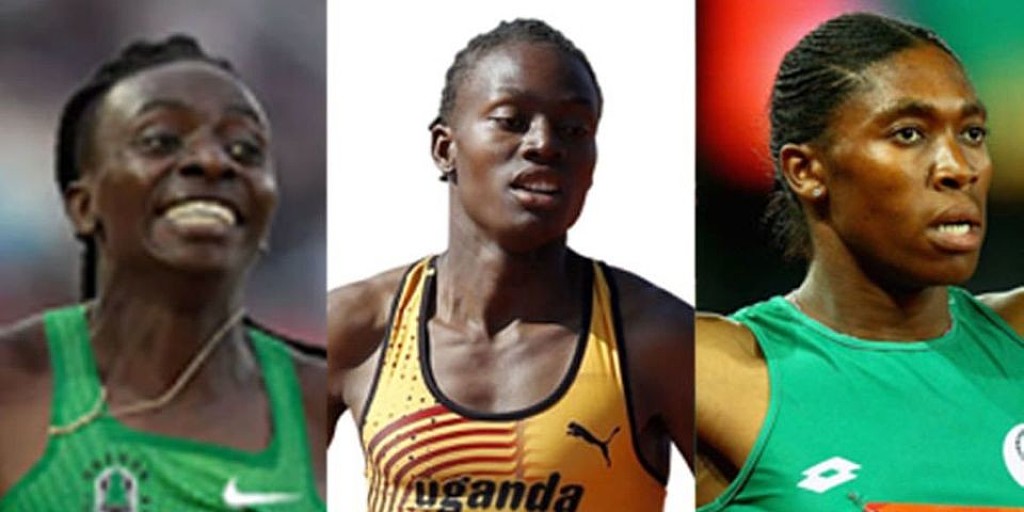Running News Daily
Running News Daily is edited by Bob Anderson. Send your news items to bob@mybestruns.com Advertising opportunities available. Train the Kenyan Way at KATA Kenya and Portugal owned and operated by Bob Anderson. Be sure to catch our movie A Long Run the movie KATA Running Camps and KATA Potato Farms - 31 now open in Kenya! https://kata.ke/
Index to Daily Posts · Sign Up For Updates · Run The World Feed
Women that have been barred from Olympics for being manly
One day, Annet Negesa was pushing her body to endure and make her the champion she believed she was born to be. On another day, her Olympics dreams were crushed because she was faster, stronger.
Annet Negesa reportedly still harbours intentions to run for her country. She runs every day, with the hope of returning to international competitions one day.
Hers is a case of unfinished business, a dream that was cut short in June 2012 when she received a call from a doctor from track and field’s world governing body telling her, according to the New York Times newspaper - that “she would no longer be competing in the London Olympics because her testosterone levels were too high for competition,” thereby giving her an unfair advantage over other female athletes.

Negesa, 20 then, was one of Uganda’s top athletes. On the back of her London preparations, she set a national record for 800 metres earlier that year at a meet in Netherlands.
She was a three-time national champion and brought home a gold medal at the 2011 All-Africa Games.

She identifies as female and was born with external female genitalia but also with internal male genitalia that produce levels of testosterone that men do.
Most women, including elite female athletes, have natural testosterone levels of 0.12 to 1.79 nanomoles per litre, according to World Athletics. The typical male range after puberty is reportedly much higher, at 7.7 to 29.4 nanomoles per litre.
After years of litigation, the Court of Arbitration for Sport (CAS) in 2019 upheld World Athletics’ testosterone restrictions for female athletes in races with distances from 400 meters to the mile after renowned athlete Caster Semenya (we shall get to her later in the article), filed an appeal.
The court ruled by a 2-to-1 vote that the restrictions were indeed discriminatory but also a “necessary, reasonable and proportionate” means of achieving the World Athletics goal of preserving a level playing field in women’s track events.
Therefore intersex athletes (these are said to be roughly one in every 2,000 births), who want to participate in middle-distance women’s track events must take hormone-suppressing drugs and reduce testosterone levels to below five nanomoles per litre (5 nmol/L) for six months before competing, then maintain those lowered levels.
Unfortunately, the intervention seems to have come seven years late for Negesa, who claims World Athletics physician Dr Stéphane Bermon gave her surgery as her first option to reduce testosterone levels in 2012.
But Negesa has since battled persistent headaches and achy joints that have not allowed her to pursue her career. Her postoperative care, which according to documents seen at the Kampala Hospital by the New York Times should have been recommended in further discussions with Dr Bermon, did not include the kind of hormone treatment that might have helped her body adjust to the change.
After Negesa appeared in a ‘break the silence’ documentary on German television’s ARD network in October 2019, World Athletics issued a statement denying that it participated in or recommended a specific treatment to Negesa.
Third category
Nine years after Negesa’s predicament, another recommendation to World Athletics; to introduce a third category of events in order to allow competitors with high testosterone levels to compete in their preferred disciplines, seems to be gathering steam after Kenyan 800m runner Margaret Wambui was ruled out of the Tokyo 2020 Olympics.
“It would be good if a third category for athletes with high testosterone was introduced; because it is wrong to stop people from using their talents,” Wambui told BBC Sport Africa.
The sport’s governing body, World Athletics, says it has no plans to introduce such a category and will stick to its current classifications of men’s and women’s events.
The idea of a third category in athletics has been floated before, but Wambui is the first athlete to express outright support for the suggestion.
“We would be the first people to compete in that category - so we can motivate others who are hiding their condition,” she said.
Since World Athletics introduced its latest rules governing DSD (disorders of sex development) athletes in 2018, not one of the three athletes who stood on the 800m podium in Rio has contested the distance at a global international championship.
At the 2016 Games, Wambui was beaten to gold by Semenya and silver by Burundi’s Francine Niyonsaba.
“It is sad to see that the whole podium won’t be there.” “They cut short our careers, because that wasn’t our plan. I feel bad that I won’t be in the Olympics because of World Athletics rules,” says Wambui.
by Daily Monitor
Login to leave a comment
Tokyo 2020 Olympic Games
Fifty-six years after having organized the Olympic Games, the Japanese capital will be hosting a Summer edition for the second time, originally scheduled from July 24 to August 9, 2020, the games were postponed due to coronavirus outbreak, the postponed Tokyo Olympics will be held from July 23 to August 8 in 2021, according to the International Olympic Committee decision. ...
more...




